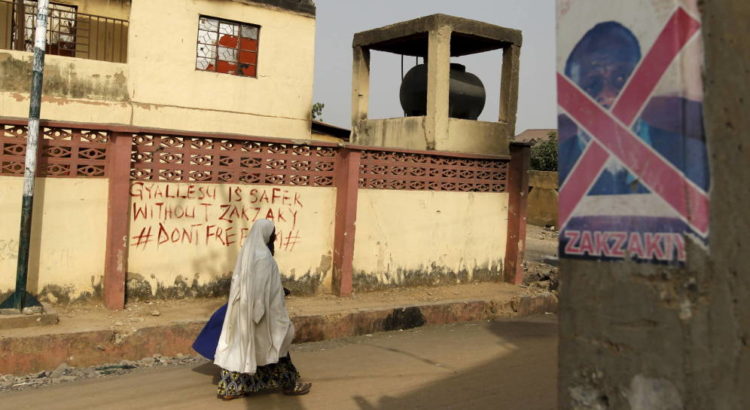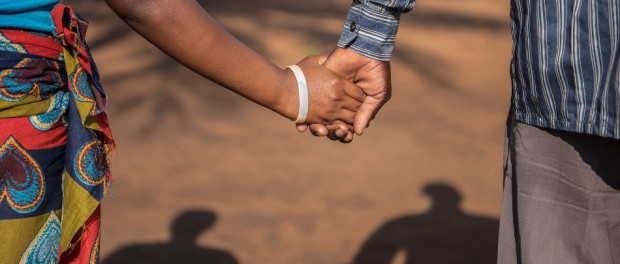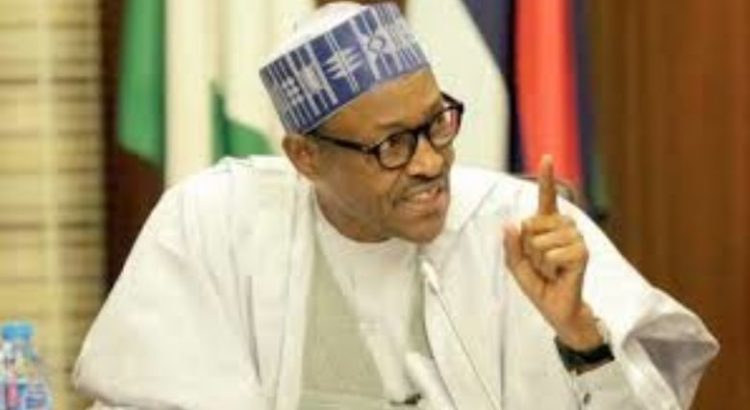Redacción: El Confidencial
Hamsatu Allamin fue el alma de la campaña “BringBackOurGirls” por el secuestro de las niñas de Chibok. Esta educadora media por la paz entre los terroristas y el Estado nigeriano
Solo unas pocas lograron huir de aquellos hombres que habían irrumpido en el dormitorio de su escuela diciendo ser policías, una ficción que se hizo añicos cuando prorrumpieron en alabanzas al Todopoderoso: “Allahu al Akbar” (Dios es el más grande). Aquellos gritos sonaban a sentencia y algunas de las niñas, quizá las más decididas, supieron que la única salida era escapar. En un descuido de sus captores, se escondieron tras unos arbustos. Luego, corrieron; corrieron en la noche sin luz eléctrica de las planicies de África. Otras saltaron en marcha de los camiones donde aquellos hombres las habían obligado a subir, o se engancharon a las ramas de los árboles bajo los que pasaban los vehículos, explicaron luego a la organización Human Rights Watch.
Era el 14 de abril de 2014 y 276 adolescentes, estudiantes de la escuela estatal de Chibok, en el nordeste de Nigeria, se habían convertido en botín de la organización terrorista Boko Haram (“la educación occidental es pecado” en lengua haussa), que se opone a la escolarización de las niñas. No eran las primeras ni serían las últimas y, como ha sucedido otras veces, su secuestro sólo hubiese sido un drama para sus seres queridos si al día siguiente el teléfono de la profesora Hamsatu Allamin no hubiera sonado en Maiduguri, la capital del estado de Borno, uno de los feudos de Boko Haram. Al otro lado de la línea, un habitante de Chibok le relató cómo más de 200 jóvenes – cristianas y musulmanas- habían sido raptadas de una escuela; cómo pese a que parece fácil seguir el rastro a un convoy de camiones atestados de adolescentes en una tierra semidesértica, nadie les estaba dando caza.
Los padres de las adolescentes eran pobres, pobres de solemnidad, como el 70% de nigerianos –unos 112 millones de personas- que subsiste bajo el umbral de la pobreza en la primera potencia petrolífera de África, un maná que sólo ha beneficiado a las multinacionales y a esas élites políticas y económicas que ahora se mostraban indiferentes a la suerte de las alumnas de Chibok. Tras el secuestro, el gobierno nigeriano transitó de las promesas vanas de rescatar a las niñas a la negación del rapto, quizá porque las autoridades sabían que se iba a producir el ataque y no habían hecho nada para evitarlo, ni siquiera enviar a unos cuantos soldados armados al colegio, como declararon después a Amnistía Internacional altos funcionarios nigerianos. Las niñas estaban solas.

Secuestrada por Boko Haram: «Mi miedo era inimaginable»
Hamsatu Allamin fue quien se interpuso entre ellas y el olvido. Al comprobar que cuatro días después su gobierno no había movido un dedo, esta educadora convocó una conferencia de prensa para la que reunió a 18 activistas locales -todas mujeres- e invitó a periodistas nigerianos y de medios internacionales. Con la ayuda de una de las ONG con las que colabora, la británica “Programa para la Reconciliación y la Estabilidad de Nigeria”, de aquella rueda de prensa salió una campaña internacional y un lema: el #BringBackOurGirls (Devolvednos a nuestras niñas).
Ese grito se convirtió en trending topic mundial cuando personalidades como Michelle Obama, la activista Malala Yousafzai, la actriz Angelina Jolie o la modelo Cara Delevigne se fotografiaron con la frase escrita en una hoja de papel. Dos semanas después, 3,2 millones de usuarios habían utilizado el hashtag (etiqueta) en la red social Twitter. La llamada de auxilio de unas familias desheredadas de Nigeria resonó en todo el planeta gracias a una profesora a la que medios de comunicación y organizaciones humanitarias pronto bautizaron como “la mujer que se atreve a hablar con Boko Haram”.
El apodo surgió porque, pese a haber denunciado públicamente las atrocidades del grupo terrorista, esta educadora sigue viva para contarlo y además ha negociado en diversas ocasiones con integrantes de la organización para lograr un acuerdo de paz, algo que requiere mucho arrojo teniendo en cuenta que a Boko Haram se le atribuyen alrededor de 20.000 víctimas mortales. Eso sin contar con que al menos 2 millones de personas han tenido que abandonar sus casas convirtiéndose en desplazadas o refugiadas para ponerse a salvo de la guerra entre los fundamentalistas y el Estado, sobre todo en Nigeria, pero también en otros países ribereños del lago Chad, como Níger, Camerún y Chad.

¿Una de ellos o una poderosa “bruja”?
¿Por qué una organización tan brutal como Boko Haram no ha matado a esta profesora que no sólo defiende todo lo contrario de sus postulados sino que además denuncia sus crímenes? Un nigeriano citado por el portal de noticias Ozy resume una sospecha que algunos de sus conciudadanos puede que tengan: “Si esta mujer no fuese una de ellos, ya habrían acabado con su vida…Si no, debe de ser una bruja poderosa que usa un polvo que los deja impotentes ante ella”.
Allamin efectivamente reconoce “ser una de ellos”, pero en otro sentido. Nacida hace 60 años en Maiduguri, pertenece a una familia de estudiosos del Corán que practica una versión tolerante del islam. Su padre era miembro de la tribu kanuri, la etnia más representada en la organización terrorista, mientras que su madre era haussa, otro grupo étnico considerado un vivero de reclutamiento para Boko Haram.
En 2002, cuando un erudito islámico formado en Arabia Saudí, Ustaz Muhammad Yusuf, funda lo que nació como una secta islámica que cometía ataques esporádicos contra las fuerzas de seguridad, Hamsatu Allamin era ya una profesora divorciada y casada en segundas nupcias, que se desplazaba conduciendo su propio coche y que podía presumir de una larga experiencia como mediadora comunitaria y activista en favor de la educación, el diálogo ecuménico, los derechos de las mujeres y en contra del matrimonio precoz. Allamin no sólo abogaba por educar a esas niñas que según Boko Haram deben limitarse a ser esposas y madres, sino que para colmo –a ojos del grupo criminal- fue funcionaria de su principal enemigo, el Estado, hasta 2016. Ese año se jubiló después de tres décadas trabajando como profesora, tras licenciarse y obtener un máster en la universidad de Maiduguri.

Alianzas, cismas y mucha violencia: la historia secreta del yihadismo en África
En 2009, tras un enfrentamiento de miembros de la secta con la policía en Maiduguri, el aparato militar y de seguridad nigeriano desencadenó una oleada de represión que terminó con el asesinato del fundador de Boko Haram durante un interrogatorio y de entre 700 y 1000 militantes o supuestos simpatizantes de la organización, muchas veces en plena calle.
Esta campaña de represión precipitó la deriva terrorista de un grupoque ya había reclutado a muchos jóvenes gracias a su discurso denostando la rampante corrupción y desigualdad en el país africano, argumentos que germinaron en el norte musulmán de Nigeria, no por casualidad la región más pobre y que registra unos peores índices de acceso a la sanidad, educación y de mortalidad materna e infantil de todo el país. En este contexto, la profesora Allamin fue testigo de cómo amigos de alguno de sus ocho hijos y adolescentes que eran sus vecinos se unían a la organización insurgente, algunos tras ejecutar un acto de enorme carga simbólica: quemar unos diplomas universitarios que de todas formas no les servían para nada.
Estos chicos que Allamin había visto crecer se echaron así en los brazos de una organización que, tras el asesinato de su líder, empezó a atacar también a civiles. En 2011, Boko Haram cometía ya sin freno masacres indiscriminadas utilizando a niñas como suicidas, poniendo bombas en mercados y arrasando pueblos enteros. El Ejército nigeriano no le iba a la zaga e incluso bombardeó su propio territorio desde el aire so pretexto de impedir una fuga masiva de yihadistas de la cárcel clandestina de Giwa.

Las mujeres como puerta de entrada
En un devastador informe, Amnistía denunció cómo, entre 2011 y 2015, al menos 7.000 hombres y niños -hasta de nueve años- fueron masacrados en prisiones clandestinas -ejecutados sin juicio o de hambre y sed y con señales de torturas atroces- tras ser detenidos simplemente por vivir en los estados feudo de Boko Haram. En medio de una guerra con dos contendientes que rivalizaban a la hora de cometer posibles crímenes de guerra, Hamsatu Allamin optó por denunciar los abusos de ambos para poder negociar la paz: “En la guerra contra la insurgencia, yo no tomo partido”, resume.
¿Cómo llegar hasta los terroristas sin ser asesinada? La respuesta a esta pregunta se la dieron a la educadora las mujeres. Cuando Allamin empezó su trabajo de mediación, optó por desplazarse a las comunidades donde Boko Haram estaba reclutando a más jóvenes, unos viajes que describe como “muy peligrosos”, pero cuyos riesgos minimizaba dirigiéndose en primer lugar al colectivo más proclive a la paz: las mujeres. “Al principio me amenazaban pero poco a poco empecé a comunicar con ellas. Al mismo tiempo, contacté con el gobierno, especialmente con las fuerzas de seguridad, que no saben quién es Boko Haram. Para ellos, cualquier joven de la zona pertenece a la organización”.
Su imparcialidad y el valor que demostraba al penetrar en la guarida de la organización, le valieron el respeto de unos terroristas que no sólo ya no amenazan su integridad física sino que incluso hablan con ella pese a saber, por ejemplo, que Allamin está detrás de iniciativas como la que ha bautizado “Boko Halal”. Boko Halal quiere decir “la educación está permitida” –halal es el antónimo de “haram”- un proyecto que financia gracias a donaciones privadas y de organizaciones internacionales y que consiste en ofrecer formación en oficios a un centenar de antiguos niños soldados del grupo terrorista.

“Si una parte de tu cuerpo coge una infección, ¿te la amputas y la tiras o intentas curarla? Ésta es la forma en la que yo veo lo que está sucediendo a los jóvenes en mi sociedad. A estos jóvenes hay que reinsertarlos en la sociedad a través del diálogo intracomunitario”, explicó en una entrevista. Allamin ha creado también una asociación, bautizada como “Movimiento Knifar”, compuesta por 1.600 mujeres y niñas cuyos maridos y padres han sido encarcelados de forma arbitraria. Este movimiento pretende forzar la liberación de los inocentes que siguen en prisión pero también que se procese a los miembros del Ejército que han violado a mujeres y niñas en el norte de Nigeria amparados en la guerra contra Boko Haram.
En 2015, la educadora estuvo a punto de lograr su objetivo al reunirse con 12 combatientes de Boko Haram en la ciudad de Lagos con el fin de organizar unas negociaciones de paz con el gobierno. La reunión fracasó debido a la “falta de interés” de las autoridades, explicó después la profesora. Previamente, había logrado convencer a la organización terrorista de suspender un atentado en la localidad de Damaturu, tras ser informada de sus planes por Ba’a Kaka, un comandante del grupo terrorista. Invocando su fe musulmana y su pertenencia a la etnia Kanuri, Allamin logró que desistieran.
Mallam Musa Mohamed, uno de sus colaboradores, describe a esta mujer como “un icono de paz”. La profesora, mientras tanto, se niega a publicar un libro con sus vivencias pese a que desde hace años recoge el catálogo del horror en el norte de Nigeria en unos “Diarios de Maiduguri”, que quizás verán la luz tras su muerte. En ellos, da cuenta de asesinatos, masacres, violaciones y otras atrocidades que, como en el caso del secuestro de Chibok, quizás de otro modo estaban destinados a quedar en el olvido.
Fuente: https://www.elconfidencial.com/mundo/2018-11-22/hamsatu-allamin-profesora-habla-boko-haram_1662090/












 Users Today : 304
Users Today : 304 Total Users : 35459899
Total Users : 35459899 Views Today : 484
Views Today : 484 Total views : 3418456
Total views : 3418456